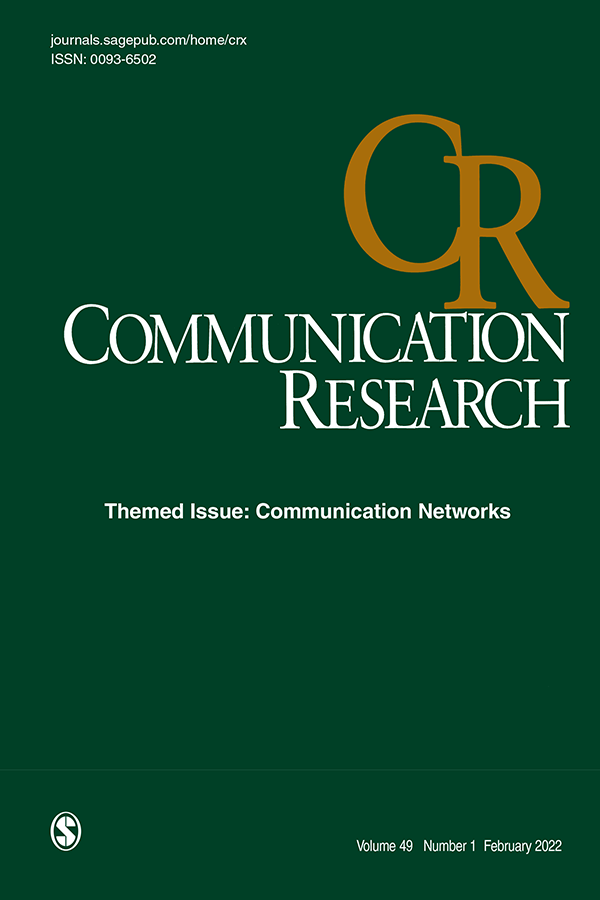封锁期间需要空间:新冠肺炎大流行期间关于身体和情感空间的对话背景下关系湍流理论的检验
IF 4.9
1区 文学
Q1 COMMUNICATION
引用次数: 0
摘要
新冠肺炎疫情颠覆了全球夫妻的家庭生活。由于居家和封锁令,许多夫妇面临着越来越大的关系不确定性和伴侣的干扰。这项研究使用关系湍流理论来检验(a)关系的不确定性和(b)伴侣的相互依赖性如何与需要与伴侣进行空间对话的认知和情绪相关联。我们研究了需要空间对话的感知与关系动荡之间的联系。在新冠肺炎大流行的头几个月,来自29个国家的609名恋爱中的成年人完成了一项在线调查。关系的不确定性与关系认知(即团结和亲密)呈负相关,来自伴侣的干扰与需要空间对话的更强烈的希望感有关。关系认知与减少的关系动荡相关,而希望与更高的关系动荡有关。讨论了关系湍流理论的理论意义和对夫妇的实际意义。本文章由计算机程序翻译,如有差异,请以英文原文为准。
Needing Space During Lockdown: A Test of Relational Turbulence Theory in the Context of Conversations About Physical and Emotional Space During the COVID-19 Pandemic
The COVID-19 pandemic upended home life for couples across the globe. Many couples faced increased relational uncertainty and interference from a partner as a result of stay at home and lockdown orders. This study uses relational turbulence theory to examine how (a) relational uncertainty and (b) partner interdependence are associated with cognitions and emotions about needing space conversations with a partner. We examine links between perceptions of needing space conversations and relational turbulence. In the first months of the COVID-19 pandemic, 609 adults in a romantic relationship from 29 countries completed an online survey. Relationship uncertainty was negatively associated with relational cognitions (i.e., solidarity and intimacy), and interference from a partner was associated with more intense hopeful feelings about needing space conversations. Relational cognitions were associated with reduced relational turbulence, and hope was associated with higher relational turbulence. Theoretical implications for relational turbulence theory and practical implications for couples are discussed.
求助全文
通过发布文献求助,成功后即可免费获取论文全文。
去求助
来源期刊

Communication Research
COMMUNICATION-
CiteScore
17.10
自引率
0.00%
发文量
20
期刊介绍:
Empirical research in communication began in the 20th century, and there are more researchers pursuing answers to communication questions today than at any other time. The editorial goal of Communication Research is to offer a special opportunity for reflection and change in the new millennium. To qualify for publication, research should, first, be explicitly tied to some form of communication; second, be theoretically driven with results that inform theory; third, use the most rigorous empirical methods; and fourth, be directly linked to the most important problems and issues facing humankind. Critieria do not privilege any particular context; indeed, we believe that the key problems facing humankind occur in close relationships, groups, organiations, and cultures.
 求助内容:
求助内容: 应助结果提醒方式:
应助结果提醒方式:


